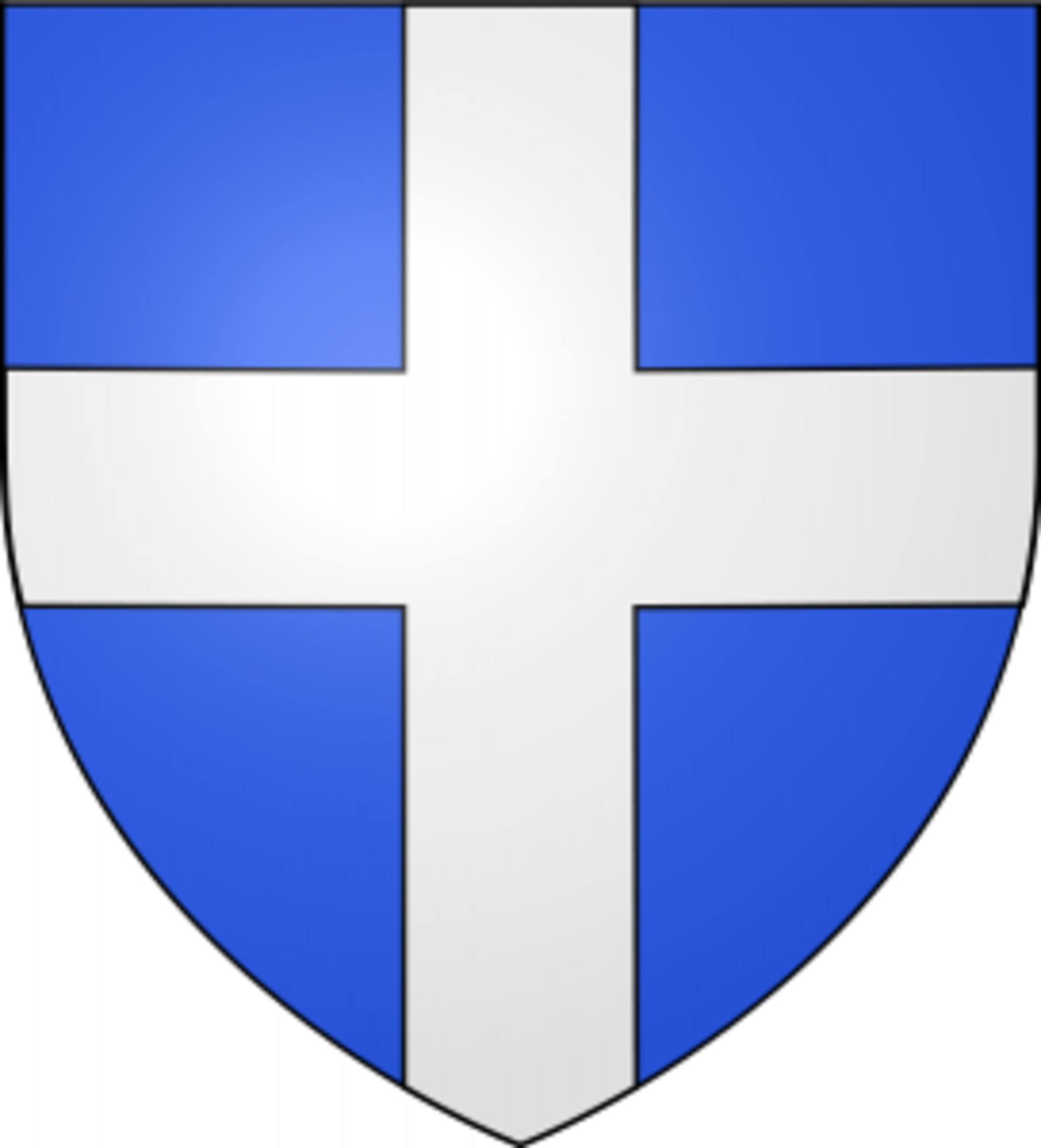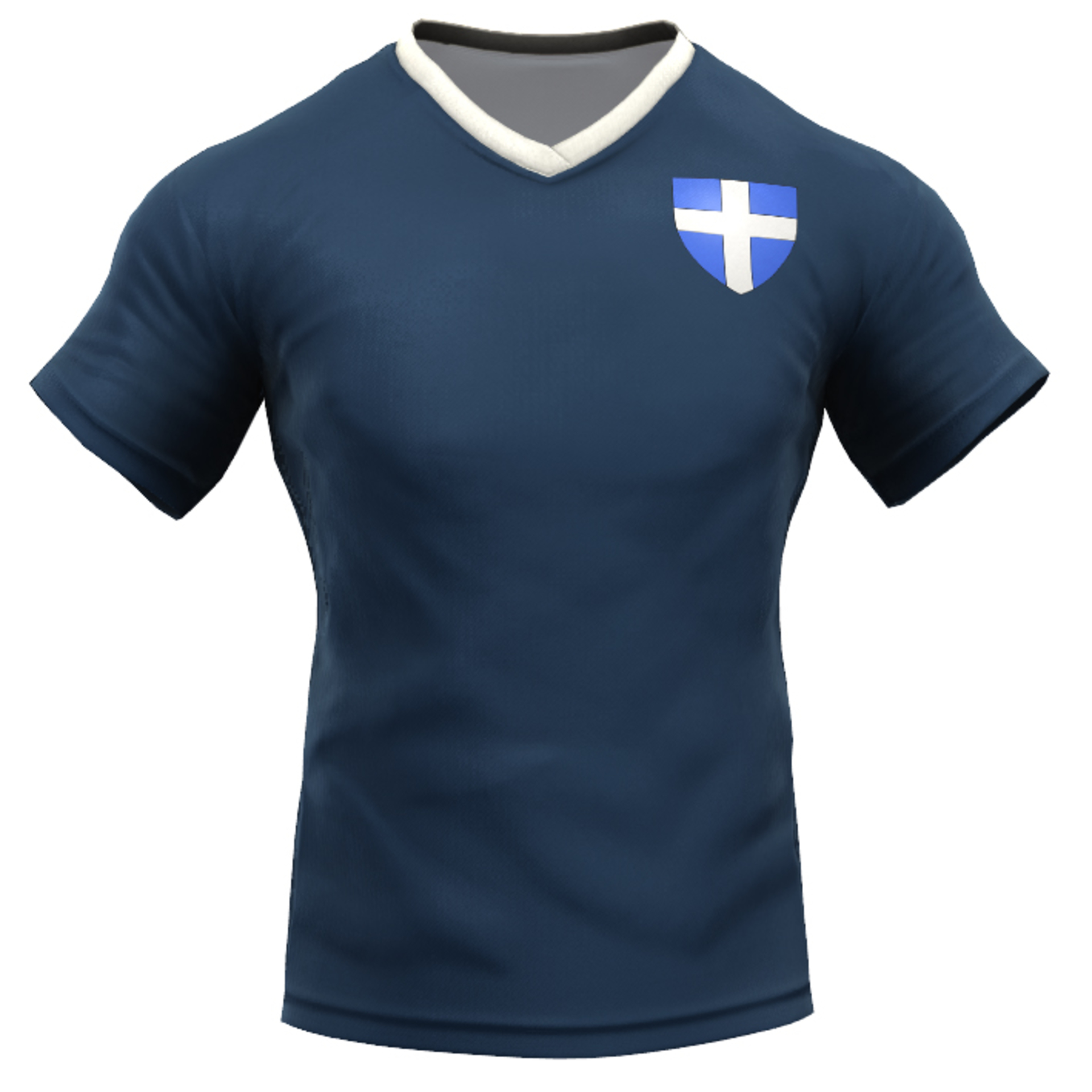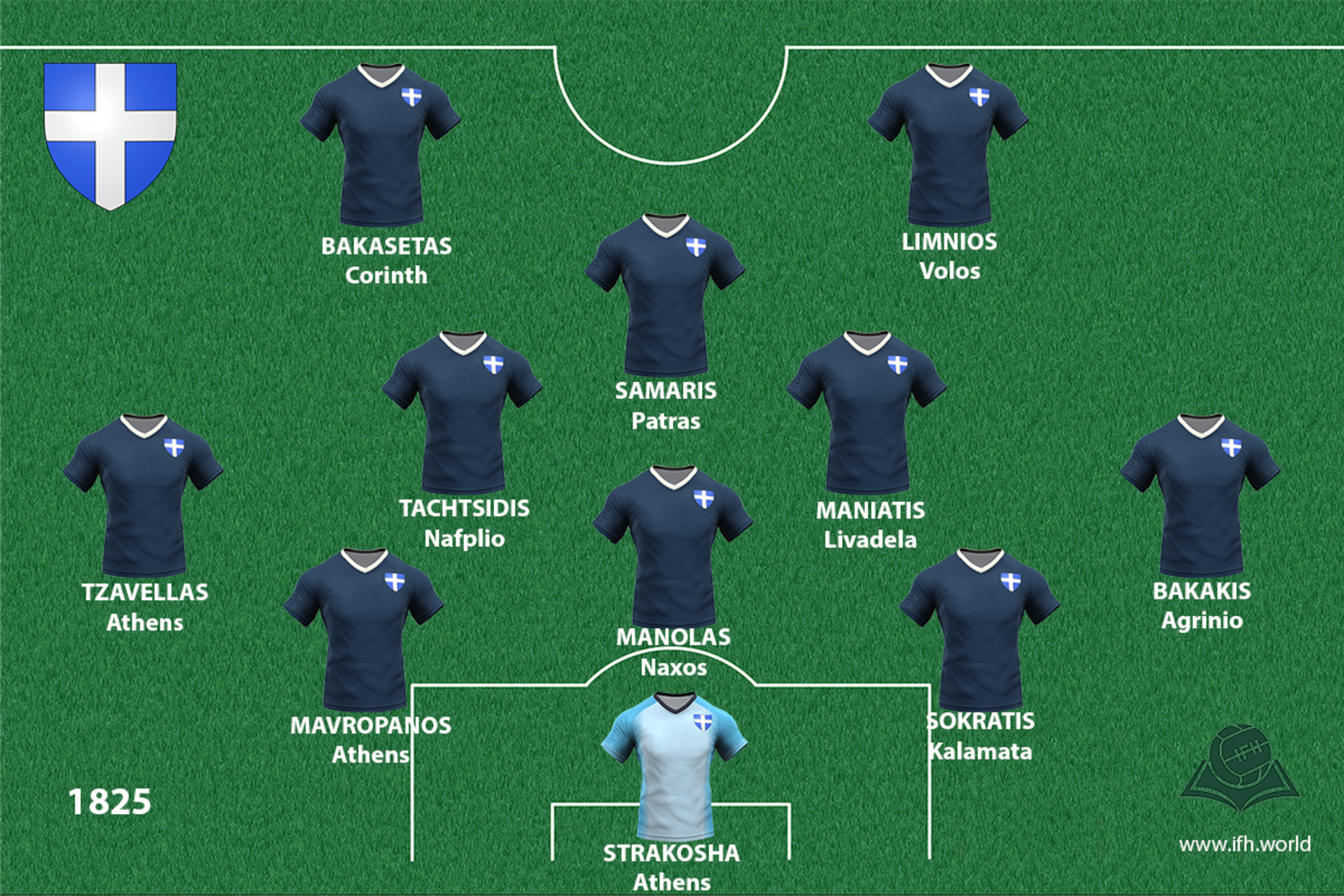Greece
The Greek War of Independence lasted, in several phases, from 1821 to 1829. A common feature of all of these phases was exceptional ruthlessness and cruelty, followed by mutual mass massacres of Orthodox and Muslims, especially in mixed communities.

Coat of arms

Shirt
| Position | First name | Last name | Mjesto rođenja | Like | Dislike | |
|---|---|---|---|---|---|---|
| GK | Orestis | KARNEZIS | Athen |
1 |
1 |
|
| GK | Stefanos | KAPINO | Piraeus |
0 |
0 |
|
| GK | Thomas | STRAKOSHA | Athens |
1 |
0 |
|
| DC | Konstantinos | MAVROPANOS | Athens |
1 |
0 |
|
| DC | Kostas | MANOLAS | Naxos |
30 |
2 |
|
| DRC | Konstantinos | TRIANTAFYLLOPOULOS | Derveni |
0 |
0 |
|
| DRC | Sokratis | PAPASTATHOPOULOUS | Kalamata |
25 |
6 |
|
| DR/MR | Michalis | BAKAKIS | Agrinio |
0 |
0 |
|
| DR/MR | Michalis | BOUKOUVALAS | Agrinio |
0 |
0 |
|
| DLC/ML | Giorgos | TZAVELLAS | Athens |
0 |
0 |
|
| DL/ML | Charalampos | LYKOGIANNIS | Athens |
0 |
0 |
|
| DC/DMC | Georgios | KOUTROUBIS | Athens |
0 |
0 |
|
| DMC | Panagiotis | TACHTISIDIS | Nafplio |
0 |
0 |
|
| DMC/DC | Dimitris | KOURBELIS | Korakovouni |
0 |
0 |
|
| DMC/DR | Giannis | MANIATIS | Livadela |
0 |
0 |
|
| MC | Andreas | SAMARIS | Patras |
13 |
3 |
|
| MC | Christos | DONIS | Naxos |
0 |
0 |
|
| MC/SS | Athanasios | ANDROUTSOS | Athens |
0 |
0 |
|
| AMRLC | Taxiarhis | FOUNTAS | Mesologgi |
0 |
0 |
|
| AMRL | Vangelsi | PLATELLAS | Athens |
0 |
0 |
|
| AMRL/SS | Dimitris | KOLOVOS | Athens |
0 |
0 |
|
| AMRL/FC | Dimitrios | LIMNIOS | Volos |
0 |
0 |
|
| SS/FRLC | Anastasios | BAKASETAS | Corinth |
0 |
0 |
|
| FRLC | Anastosios | KARAMANOS | Aspropyrgos |
0 |
0 |
|
| FRLC | Christos | ARAVIDIS | Athens |
0 |
0 |
|
| FRLC | Dimitris | DIAMANTAKOS | Pireus |
0 |
0 |
(Today: Central Greece, Peloponnese)
The war between the Greeks and the Ottomans was marked by mutual conflicts of rebels over control in liberated territories and fights over leadership in the future government. The Ottomans were simultaneously facing inner problems. Despite the fact that Europe was enthusiastic about ancient art and philosophy, the participation of foreign powers in the creation of “independent Greece” shouldn’t be perceived as something done for a higher ideal. It was primarily motivated by geopolitical interests. Great Britain feared that Greece, with its geostrategic value, would fall under the influence of Russia or France, while Russia tried to exploit massacres of the Greeks to extend its protectorate to all Christians in the Ottoman Empire and get closer to its most important goal – occupying the Bosporus and the Dardanelles.
The Greek War of Independence ended with the Ottoman defeat in the war against Russia 1828-1829, when independent Greece was created on Peloponnese and central areas south of Thessaly. In general, the “Greek” population lived for four centuries within the Ottoman system of governance, which makes it understandable that, until the 19th century, they identified themselves more by their Orthodox religion than by some Greek national identity.
Sources
- Darko DUKOVSKI, Povijest Srednje i Jugoistočne Europe 19. i 20. stoljeća , sv.I., Zagreb, 2005.
- Felipe FERNANDEZ-ARMESTO, Narodi Europe, Zagreb, 1997.
- Grupa autora, Povijest: Napoleon, restauracija i revolucionarna kretanja (1800 – 1848), knjiga XIII., Zagreb 2008.
- Vasilj POPOVIĆ, Istočno pitanje , Sarajevo, 1956.
- Kristijan OBŠUST, ''Idealizovanje antičke Grčke klasičnog perioda kao „kolevke evropske kulture“. Stara Grčka kao univerzalni uzor za stvaranje modernih evropskih nacija'',http://www.journal.casca.org.rs/2012/12/24/idealizovanje-anticke-grcke-klasicnog-perioda-kao-kolevke-evropske-kulture-stara-grcka-kao-univerzalni-uzor-za-stvaranje-modernih-evropskih-nacija
- Coat of amrs http://www.idtg.org/archive/337-unique-arms/
